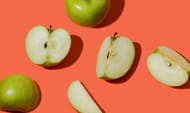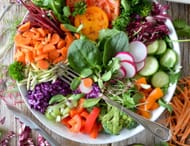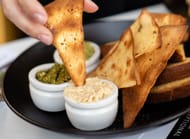100-calorie snacks are a convenient option for anyone who's trying to manage their overall calorie intake. These snacks have the capability to satisfy hunger or curb cravings, but also provide the nutritional value that the body needs on a daily basis.
Essentially, 100-calorie snacks can come in various forms, including processed food, sugary items or 100-calorie snack packs that add to your body’s nutritional requirement. Ultimately, it depends on your choice of 100-calorie snacks that are more aligned with your diet and what you pick. However, it’s good to know about some of the most common healthy 100-calorie snacks.
100-Calorie Snacks

The following are some of the 100-calorie snack packs that you should know about:
- Baked chips
- Rice cakes
- Yoghurt cups
- Nut packets such as almonds and peanuts
- Cracker packs
- Dried fruit
- Pretzels
- Apple slices with peanut butter
- Baby carrots with hummus
- Air-popped popcorn
100-Calorie Meals

You may not always crave itty-bitty 100-calorie snacks, and that's completely understandable! Sometimes, your body will crave meals, and there are some healthy meals that comprise 100 calories.
Here are some meals that have a count of 100 calories:
- 1 oatmeal serving with almond milk
- Bowl of vegetable with dip
- Green salad with tomatoes and cucumber
- Hard boiled eggs
- Small smoothie made from protein powder, frozen berries, and almond milk
- Rice cakes with avocado spread
You must remember that 100-calorie snacks are based on portion size and brand. While all snacks in the same portion will have approximately the same calories, different brands could give us different numbers. Hence, you shouldn’t rely on any given snack to be 100-calories unless you’ve actually measured them yourself on a food weighing machine.
Almost every food item comes with a nutritional value label that informs consumers of the number of calories per 100g or the number of calories per 50g. You can use that information to calculate how much of it is approximately 100-calories.
Are 100-Calorie Meals Advisable?

It so happens that if you’re on a strict diet and craving a snack, 100-calorie snack packs suit your needs perfectly. However, this should only be limited to snacks. If you’re looking for a 100-calorie meal whenever you are hungry, it could lead to eating disorders.
You must never have as low as only 100-calorie meals for every meal (unless you’re consuming a meal every hour!). Instead, what you can do is, keep some 100-calorie snack packs handy in case you need some extra fuel for the day.
It goes without saying that a small meal of 100-calories will not have the same amount of macronutrients as a well-balanced meal. Therefore, it’s essential that you build a diet with the required amount of protein, fat, and carbohydrates, so your body gets the proper amount of nutrition.
What Is A Calorie?
Now that you've understood 100-calorie snacks and the types of snacks and meals you can have in one, you should also understand the meaning of calories. Calories are a unit of energy. Your body burns stored calories to generate the energy required for various tasks and exercises you perform during the day.
The body receives these calories from food consumption. Therefore, if you provide your body with excess calories, it will get stored for future use. This is how fat is stored in the body. Therefore, to lose fat, you need to burn the stored calories. The first step in doing so is to be on a calorie deficit diet, where you consume fewer calories throughout the day than what you burn.
When you’re in a calorie deficit, your body will dive into the stored calories to make up for the difference, which will lead to fat loss. Next, you should add a workout routine. This could be running, jogging, swimming or training at the gym.
Finally, adequate rest, sleep, and hydration are the three other key elements to leading a healthy lifestyle while achieving the physique of your dreams!
